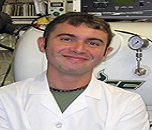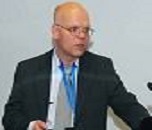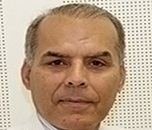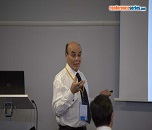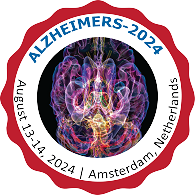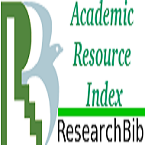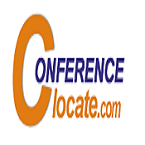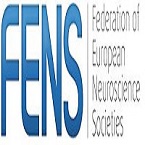Sessions & Tracks
Track 1: Alzheimer’s Diseases
Alzheimer's disease ranks as the most common type of dementia. It manifests as a progressive ailment that initiates with minor memory deficits and may ultimately progress to the point where individuals lose their capacity to engage in conversations and respond to their surroundings. This condition predominantly affects regions of the brain responsible for cognition, memory, and language. The precise etiology of Alzheimer's disease remains incompletely elucidated, but it likely arises from a complex interplay of factors, including age-related alterations in the brain such as atrophy, inflammation, vascular damage, and disruptions in cellular energy metabolism, which can lead to neuronal damage and impact other brain cells.
Track 2: Anxiety & Depression
Anxiety encompasses feelings of fear, apprehension, and discomfort, often accompanied by symptoms like perspiration, restlessness, tension, and a heightened heart rate. It can be a typical response to stress. Depression, on the other hand, constitutes a mood disorder characterized by persistent sadness and a diminished interest in life. Referred to as major depressive disorder or clinical depression, it exerts a profound influence on your emotions, thoughts, behaviours, and can give rise to a range of emotional and physical challenges.
Experiencing traumatic or stress-inducing events, such as physical or sexual abuse, the loss of a loved one, or financial difficulties, encountering significant life changes, even if they were planned, grappling with medical conditions like cancer, stroke, or chronic pain, or taking certain medications can contribute to the onset of depression.
Track 3: Child and Adolescent Psychiatry
Child and adolescent psychiatrists are dedicated to fostering emotional well-being and addressing mental health concerns, encompassing the prevention, early intervention, and treatment of various forms of mental illness, emotional disruptions, and atypical behaviour. They serve a broad spectrum of patients, ranging from those with mild, episodic disorders to individuals grappling with chronic and long-lasting conditions.
Child and adolescent psychiatry operates at the intersection of psychiatry, paediatric medicine, and neurology. A clinician in this field is tasked with gathering a comprehensive medical history, conducting relevant physical examinations, and, when necessary, performing laboratory assessments. These measures serve to either support or refute the preliminary diagnosis, taking into account the holistic biopsychosocial perspective.
Track 4: Clinical Neurology, Neurophysiology and Neurosurgeries
Clinical Neurology and Neurosurgery is committed to the dissemination of research papers and reports focusing on the clinical dimensions of neurology and neurosurgery. Neurophysiology, within the realm of health sciences, is a field concerned with the measurement and evaluation of the functional aspects of the nervous system, as opposed to its anatomical structure. Clinical neuroscience delves into strategies for managing and averting neurological disorders and addresses the rehabilitation of individuals whose nervous systems have sustained injuries.
Track 5: Dementia
Dementia refers to the deterioration of cognitive abilities, including thinking, memory, and reasoning, to an extent that disrupts a person's daily life and activities. Some individuals with dementia may experience difficulty in managing their emotions and may undergo alterations in their personalities. This condition arises from the impairment or loss of nerve cells and their interconnections in the brain, with the specific symptoms contingent upon the affected brain regions. Dementia exhibits considerable variability in its impact on individuals.
Track 6: Mental health
Mental health encompasses our emotional, psychological, and social well-being, playing a pivotal role in shaping our cognition, emotions, and behavior. It significantly influences our capacity to cope with stress, cultivate relationships, and make sound decisions. The importance of mental health is not confined to a specific life stage but extends across every phase, from childhood and adolescence through adulthood.
Mental health pertains to a broad spectrum of conditions, including mood disorders like depression and bipolar disorder, anxiety disorders, personality disorders, and psychotic disorders such as schizophrenia. These conditions collectively underscore the multifaceted nature of mental health and its relevance throughout our lives.
Track 7: Neurodegenerative Diseases
Neurodegenerative diseases manifest when nerve cells in the brain or peripheral nervous system progressively lose function and eventually succumb. The fundamental mechanisms driving neurodegeneration (ND) are recognized as multifaceted, stemming from a combination of genetic, environmental, and internal factors associated with the aging process. While no definitive cures exist for neurodegenerative disorders like Parkinson's or Alzheimer's disease, there is a growing array of therapeutic and supportive interventions accessible to mitigate their impact.
Track 8: Neurological Diseases
A neurologic disorder arises from an aberration in the functioning of the brain or the nervous system, encompassing the spinal cord and nerves. This dysfunction can lead to both physical and psychological symptoms. The intricate development of the brain initiates before birth and persists throughout infancy, childhood, and adolescence.
Neurological issues may exhibit various origins. Some are congenital, present from birth, while others have a genetic basis. Certain disorders manifest suddenly due to injuries or illnesses, such as head trauma, stroke, or brain or spinal cancer. While many neurological conditions defy complete cure, physicians can employ rehabilitation to ameliorate symptoms and aid in the restoration of daily functioning.
Track 9: Parkinson Diseases
Parkinson's disease is a neurological condition characterized by involuntary or unmanageable movements, including tremors, rigidity, and challenges in maintaining balance and coordination. These symptoms typically emerge gradually and progress over time. Individuals with Parkinson's may have an increased susceptibility to severe and life-threatening infections. Nevertheless, thanks to advancements in treatment, the majority of those living with Parkinson's disease now enjoy a life expectancy that is either normal or close to normal.
Track 10: Psychology
Psychology encompasses the examination of the mind and behaviors in both human and non-human entities. Within its purview lies the exploration of conscious and unconscious processes, encompassing emotions and thoughts. It constitutes a broad academic discipline that transcends the boundaries between natural and social sciences. Additionally, it enhances our capacity to communicate with and comprehend others, further enriching our understanding of human behaviour and cognition.
Track 11: Public Awareness
Through open communication with others regarding the daily challenges you encounter, you can actively contribute to shaping legislation at local, state, and federal levels. The public health approach to Alzheimer's disease incorporates several key components. These include early detection and diagnosis, the reduction of risky health behaviors, and the collection and utilization of surveillance data. Raising awareness about Alzheimer's fosters greater comprehension and support for individuals grappling with memory loss. By gaining a deeper understanding of memory loss and the unique needs of patients, families, and caregivers, they can more effectively navigate the specific challenges they encounter. This heightened awareness also promotes self-understanding.
Track 12: Recent Developments in Dementia Treatment
The Food and Drug Administration (FDA) has recently granted full approval to a novel Alzheimer's treatment known as lecanemab. This medication has demonstrated the ability to moderately decelerate cognitive and functional decline in individuals with early-stage Alzheimer's disease. It received traditional approval from the US FDA for Alzheimer's disease treatment based on Phase 3 data derived from the Clarity AD clinical trial. Additionally, recent research suggests that older individuals with higher levels of triglycerides, a type of fat in the bloodstream, may experience a reduced risk of dementia and a slower cognitive decline over time when compared to those with lower triglyceride levels.
Track 13: Strokes and Neurocardiology
A stroke represents a critical medical emergency, as it can result in enduring brain damage, long-term disabilities, or even death. The indicators of a stroke can encompass a spectrum of symptoms, ranging from mild weakness to paralysis or numbness affecting one side of the face or body.
Furthermore, stroke-related cardiac damage can have severe consequences, potentially leading to fatality or the development of lifelong cardiac issues, such as heart failure. It can also result in milder and recoverable conditions like neurogenic stress cardiomyopathy (NSC) and Takotsubo cardiomyopathy. A stroke constitutes a sudden interruption of continuous blood flow to the brain, resulting in a loss of neurological function.
Track 14: Physiotherapy
Physiotherapy plays a crucial role in the restoration of mobility and functionality for individuals impacted by injuries, illnesses, or disabilities. Moreover, it serves to diminish the risk of future injuries or illnesses. This comprehensive approach actively engages the patient in their own care.
Physiotherapists assist individuals affected by injury, illness, or disability through methods such as movement and exercise, manual therapy, and the provision of valuable education and guidance. They promote overall well-being across all age groups, aiding patients in pain management and disease prevention.
Track 15: Medical Biotechnology and Alzheimer’s disease
Presently, medical biotechnology is ushering in newfound optimism for the management of Alzheimer's disease. An illustration of this progress can be found in on-going clinical trials, representing a significant breakthrough as the initial drug aimed at impeding or potentially arresting the advancement of Alzheimer's disease. In the field of structural techniques, both magnetic resonance imaging (MRI) and computed tomography (CT) are instrumental in offering insights. Meanwhile, functional imaging unveils the efficacy of cells in various brain regions by demonstrating the active utilization of sugar or oxygen.

